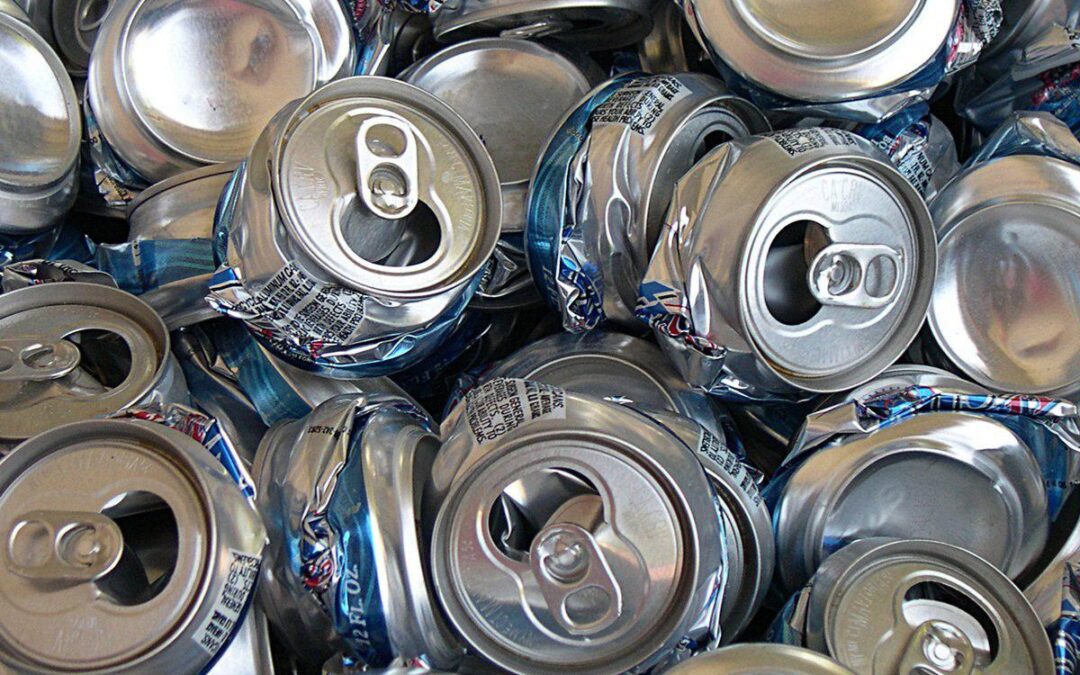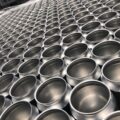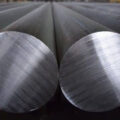The Brazilian aluminum industry already has carbon emissions levels significantly below the world average, but has plans to further reduce these emissions by increasing the use of renewable energy and more recycling, Fastmarkets has learned.
The Brazilian sector will also closely monitor the volumes of potentially carbon-rich material being diverted from Europe.
Market participants discussed the decarbonization of the industry during panels and on the sidelines of the annual Brazilian aluminum conference in São Paulo, held under the title “9th International Aluminum Congress”.
One of the topics for discussion was how Brazil might react to the introduction by the European Union of its Carbon Border Adjustment Mechanism (CBAM).
“CBAM can change the dynamics of foreign trade, and we must know how to act, being a developing market and already having low emissions,” Janaina Donas, executive president of the Brazilian Aluminum Association (ABAL), told Fastmarkets on Wednesday, April 10.
“We need both offensive and defensive action,” he added,
“developing our own carbon market with the bill currently before Congress, while protecting our market from commercial inflows of material with higher emissions.”
The Brazilian aluminum industry emits around 4.5-6.5 tons of carbon equivalent emissions per ton of primary metal produced, according to ABAL. Compared to a world average of 15-16 tons when considering the “cradle to gate” calculation, almost 65% less.
Fears of decarbonization efforts clashing with CBAM
The biggest fear among industry participants in Brazil was that the country’s decarbonization efforts would be unresponsive to CBAM and other trade barriers around the world, opening up the possibility of cheaper and “dirtier” material being imported from other regions, which would also lead to a glut of local material.
“Studies show that the best alternative for Brazil, in addition to regulating our own carbon market, is to establish a ‘cap-and-trade’ mechanism as a border barrier to carbon,”
said Donas.
Meanwhile, the industry is moving forward with new emission reduction measures. Hydro Rein, a subsidiary of aluminum producer Hydro Rein, for example, has developed a solar power plant together with Equinor and Scatec. Last month it began supplying power to Hydro’s Alunorte alumina refinery.
Hydro Rein is also developing a hybrid solar and wind power project to supply power to both its Paragominas bauxite mine and Alunorte.
Alunorte will replace heavy fuel oil with natural gas and will stop using coal by installing electric boilers at the refinery. This, together with renewable energy projects, will contribute to reducing its carbon emissions to 0.2 tons of CO2 equivalent per ton of alumina produced by the end of 2030, compared to 0.65 tons today.
“There has to be a market premium for this more environmentally friendly material,”
, Carlos Eduardo Neves, Hydro’s director of bauxite and alumina operations, told Fastmarkets on the sidelines of the Brazilian aluminum conference.
“That way the investment will be recognized.”
More investment in recycling
The Brazilian aluminum producer Companhia Brasileira de Alumínio (CBA) has invested 115 million reais (US$22 million) and inaugurated a new scrap processing line at the Metalex division in São Paulo earlier this month. It now intends to increase the recycled content of its products in the coming years, Roseli Milagres, the company’s supply chain director and head of purchasing, said during the conference.
The new line can work with different aluminum alloys and contaminant cleaning. The company is also developing its own scrap collection center.
With these operations, the recycled content of CBA’s billet production should increase from 60% to 80%. The company also expects to increase its secondary production, Milagres said.
The industry is moving in the same direction as the measures already announced by the government to improve the recycling chain.
According to the Brazilian Ministry of Environment and Climate Change (MMA), the maturity of companies in the metallurgical sector made the government want to “raise the bar” in its solid waste policies, tightening the regulation of reverse logistics, with rules that oblige the industry to collect the waste it produces.
Currently, 60% of all aluminum produced in Brazil is recycled, according to Adalberto Maluf, National Secretary of Urban Environment and Environmental Quality. As for aluminum cans, 90% are recycled in Brazil.
“It is probably one of the sectors in the country that recycles the most.”
he said.
But he added that less than 30% of the industry participants contributing to metal recycling are actually represented in financial terms in the current accounting system.
“The electronics sector pays a high cost for reverse logistics and suffers from unfair competition from imports, which pay nothing, and from other players in the sector [que aún no han regulado sus sistemas de reciclado]”
said Maluf.
According to Maluf, R$300 million was set aside from the national budget in 2023 for a project that provides for an income tax deduction for individuals and companies that support recycling projects approved by the ministry. This would follow the same line that is now being followed in the culture sector in Brazil, with the so-called Rouanet Law.
Government wants to end dumping
The government is also working on a national pact to end dumping, with investments in cooperatives and urban recycling structures. The intention is to increase the remuneration of cooperatives and collectors, taking into account the environmental service provided, Maluf said. Increasing the use of scrap is a way for the industry to reduce costs and be less exposed to price volatility in markets such as the London Metal Exchange, for example. According to CBA’s CEO, Luciano Alves, the use of secondary aluminum ensures greater margin stability for this reason.
Fastmarkets’ assessment of the premium, low-VAT P1020A aluminum market, delivered in the São Paulo region, was $220-250 per tonne on April 2. This value increased by $10 per tonne from $220-240 per tonne a fortnight earlier, but was a return to the level of March 5, when it was first published.
In addition to the cost benefits, greater use of recycled materials would help companies reduce their environmental impact.
CBA currently has an emissions level of 2.97 tons of CO2e per ton of products manufactured, and expects to reach 1.4 tons of CO2e per ton produced at its Metalex unit by 2030.
“Other producers in the market have emissions 3-4 times our current level.”
Alves said.
Milagres also highlighted the growing demand for aluminum in key sectors for decarbonization, such as light commercial vehicles, electric vehicles and hybrids. These vehicles, he said, use 40% more aluminum than internal combustion alternatives.
To understand the complex market conditions that influence price volatility, download our monthly base metals price forecast today, including the latest aluminum price forecasts. Get a free sample.















